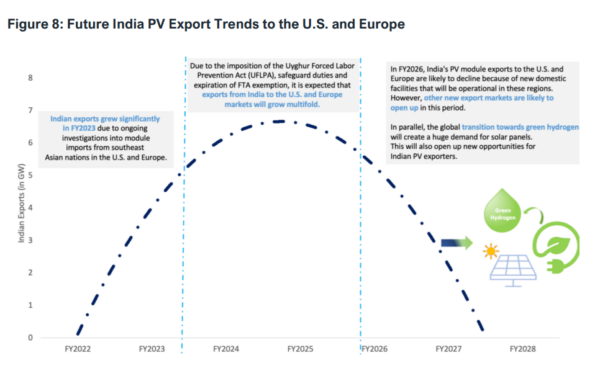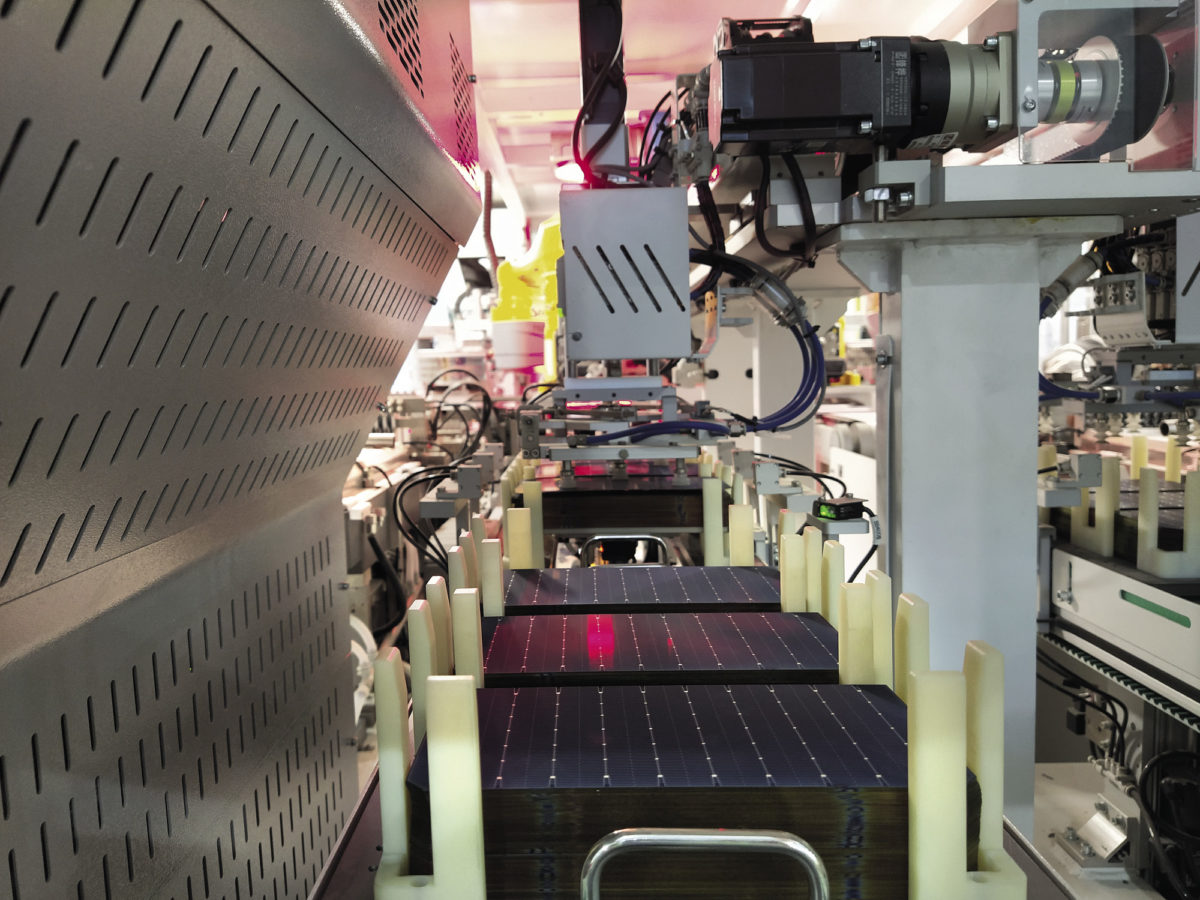India’s solar photovoltaic (PV) module exports to the USA will keep rising before stagnating from 2025 and declining from 2027, finds a new joint report by the Institute for Energy Economics and Financial Analysis (IEEFA) and JMK Research & Analytics.
The report finds that after the implementation of the Inflation Reduction Act (IRA) and the Green Deal—key policies that promote local manufacturing in the USA and the European Union (EU), respectively—the USA and the EU will take two to three years to establish domestic solar PV manufacturing lines catering to their needs. Once the domestic manufacturing of the USA and the EU develops, Indian exports will start declining.
“With annual global solar installations forecast to reach at least 1 terawatt (TW) by 2030, it is clear that there will be no dearth of PV demand in the future. Thus, Indian manufacturers must focus equally on domestic and international markets. Indian PV products will also need to compete in global markets with other large PV manufacturing countries in terms of quality and scale,” says the report’s co-author, Vibhuti Garg, director, South Asia, IEEFA.

The report notes that India’s PV module exports to the USA have grown exponentially recently—16 times (by value) in FY 2023 vis-à-vis FY 2022. In FY 2023, India exported around $1 billion worth of PV modules to the USA, which is around 97% of the entire global module exports from India.
“The USA has traditionally been the largest export destination for Indian PV products. Therefore, after 2027, Indian companies will need to explore the African and South American markets for maintaining the momentum in exports,” says the report’s co-author, Jyoti Gulia, founder, JMK Research.
“By FY 2027, the global transition to green hydrogen will create a huge demand for solar PV panels. This will also open up a considerable market for PV manufacturers for their products,” she adds.
Based on public announcements, the report assesses that the IRA will help add 50 GW of module manufacturing capacity in the USA while the Green Deal will help add 31 GW of module manufacturing capacity in the EU.
“Manufacturing upstream components will be more challenging than making modules due to their complex and expensive production process. As a result, the IRA also opens up export opportunities for Indian companies producing upstream components. Indian companies have also had a headstart of at least one year compared to companies setting up facilities in the USA because of the capacities under the Production Linked Incentive (PLI-l) tranche already awarded in November 2021,” says the report’s co-author, Prabhakar Sharma, consultant, JMK Research.
The report finds that several Indian manufacturers are looking to set up module lines in the USA and cell or ingot/wafer lines in India.
The report also notes that the success of the IRA will influence the future PV manufacturing policy design by Indian regulators.
“The USA is a global leader and superpower, which other countries look up to and try to emulate. The IRA, by all measures, is a landmark legislation on climate change. An initiative of this magnitude by the largest country in the world will motivate others to do the same. Future iterations of PLI may include layered incentives, an extended policy impact period, easier eligibility criteria to avail incentives, etc,” says Gulia.
This content is protected by copyright and may not be reused. If you want to cooperate with us and would like to reuse some of our content, please contact: editors@pv-magazine.com.









2 comments
By submitting this form you agree to pv magazine using your data for the purposes of publishing your comment.
Your personal data will only be disclosed or otherwise transmitted to third parties for the purposes of spam filtering or if this is necessary for technical maintenance of the website. Any other transfer to third parties will not take place unless this is justified on the basis of applicable data protection regulations or if pv magazine is legally obliged to do so.
You may revoke this consent at any time with effect for the future, in which case your personal data will be deleted immediately. Otherwise, your data will be deleted if pv magazine has processed your request or the purpose of data storage is fulfilled.
Further information on data privacy can be found in our Data Protection Policy.